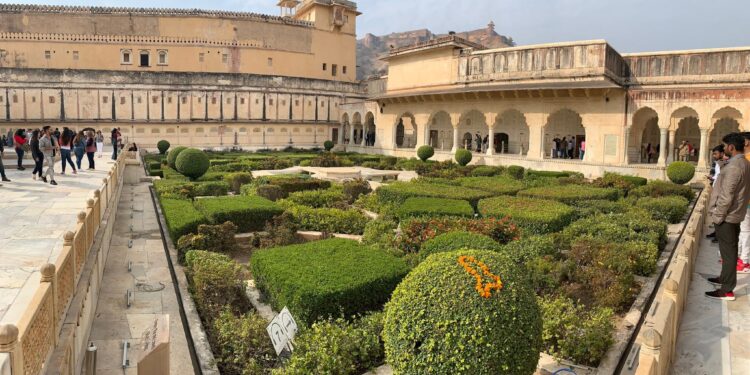RAMESH DEVADOSS
MADURAI, SEPT 27
The tourism industry, which’s hit hard by the COVID-19 pandemic, is seeking a slew of sops like the waiver of rents, taxation, and EMI from the Centre to revive it.
The tourism centered economy has definitely felt a blow as the COVID crisis had a major impact on tourism, hospitality, and its allies and could not be measured.
While various sectors of the economy have started reviving after COVID lockdown restrictions were eased since early this month, the tourism industry is still reeling from a downturn. With the industry still struggling and searching for a way for revival, the livelihoods of many stakeholders especially tour operators and travel agents, who solely rely on this industry, are at stake and the situation tends to be uncertain, Thilak Rajkumar, Founder of GMGG, who’s representing Global operations for Outbound and Inbound Tourism, said on World Tourism Day, Sunday.

Tourism was once a significant source of revenue and Tamil Nadu ranked among the top three places in terms of domestic and international tourist arrivals in India. Madurai, the emerging ‘Smart City’, an ambitious project, is no doubt the hub of tourism in the state. But much to agony, the destination management companies are left in the lurch, he lamented.
Days after the lockdown restrictions were relaxed by the state government, business and commercial activities are gradually returning to normal, but the tourism sector is having a tough time keeping with this worst scenario as stakeholders could hardly afford to rent office space. Many struggled for survival and after being unable to withstand extreme conditions that created new challenges. As a result, the livelihoods of tour operators underwent a major transformation as many of them ventured into new fields of business eventually to earn their livelihoods, he told navjeevanexpress.com.
Further, he said less regulation and easy procedures to start up a travel agency or tour company has made myriad people to have seeded into the industry. With the changing scenario, only tourism professionals could gauge the challenging phase, whereas the unprofessionals, who started capitalizing when the market was good, were not able to cope with any unexpected upheavals. Eventually, the professionals could reorient in the travel or tourism trade, whereas non-professionals opted for different tradeoffs.
Hence, without tighter control and stronger regulation from government bodies, the present and the near future of the industry would lose its poise.
Citing these issues as a major factor worsening the scenario, he made an earnest request to the government for implementing a new regulation structure, waiver of rents, taxation, and EMI as the tourism industry, which contributed to the overall increase in India’s GDP, was hit first, would recover from its worst slump, Rajkumar hoped.
(Author is Madurai-based PhD Scholar in History and Freelance Journalist)









